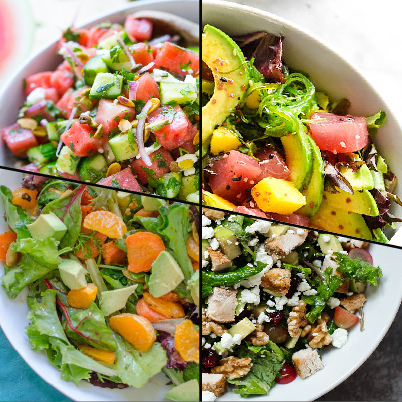Americans love a good hot dog, especially at a baseball game or backyard barbecue. But docs say it doesn't get worse than this old classic.
"Anyone who has seen how hot dogs are made has likely already stricken this bad boy from their diets just because, well, it's disgusting," says Dr. Gropper. "Medically, hot dogs are like a hand grenade for your overall health, and most particularly vascular health." Firstly, hot dogs are loaded with fat and cholesterol, especially saturated fats, which have been linked to atherosclerotic vascular disease and heart disease. "Since every organ system relies on its blood flow to survive, the health of the vascular system is the key to every organ system staying healthy, and thus your overall health," he explains.
Worse, hot dogs are a processed and usually cured meat. This means they're full of nitrates and nitrites, which have long been proven to significantly increase a person's risk for cancer. "Fresh meats are always a much better choice, as is any fresh food," says David Greuner, M.D., dermatologist at NYC Surgical Associates. Next time you are at a baseball game, he recommends going with some chips or fries instead of a hotdog or sausage hero.
Image via Getty
"Anyone who has seen how hot dogs are made has likely already stricken this bad boy from their diets just because, well, it's disgusting," says Dr. Gropper. "Medically, hot dogs are like a hand grenade for your overall health, and most particularly vascular health." Firstly, hot dogs are loaded with fat and cholesterol, especially saturated fats, which have been linked to atherosclerotic vascular disease and heart disease. "Since every organ system relies on its blood flow to survive, the health of the vascular system is the key to every organ system staying healthy, and thus your overall health," he explains.
Worse, hot dogs are a processed and usually cured meat. This means they're full of nitrates and nitrites, which have long been proven to significantly increase a person's risk for cancer. "Fresh meats are always a much better choice, as is any fresh food," says David Greuner, M.D., dermatologist at NYC Surgical Associates. Next time you are at a baseball game, he recommends going with some chips or fries instead of a hotdog or sausage hero.
Image via Getty
Carbs get a bad rap and have inspired countless diets that promote completely cutting carbs as a means of creating weight loss and improved health. But carbs, in general, aren't really the issue. It's "bad carbs," namely white foods, which are processed and refined and often white in color -- think rice, flour, bread, crackers, pasta, etc. Because the body absorbs grains and high-glycemic foods, they're not only less satisfying because your body processes them quickly, but they also cause your blood sugar to rise up, releasing the stress hormone cortisol in the process."When your blood sugar rises, so does your risk of diabetes, depression, weight gain and fatigue," says Fiona Gupta, M.D., neurologist at North Jersey Brain and Spine in Oradell, New Jersey.
Instead, Dr. Gupta recommends trading in white rice and white bread for whole grain bread or rice or better yet black beans. "These will fill me up, are a great source of protein and magnesium, and promote healthy blood flow, which may stave off diseases like Alzheimer's disease."
Image via Getty
Instead, Dr. Gupta recommends trading in white rice and white bread for whole grain bread or rice or better yet black beans. "These will fill me up, are a great source of protein and magnesium, and promote healthy blood flow, which may stave off diseases like Alzheimer's disease."
Image via Getty
Sushi fans, listen up. Eel (aka unagi) might be delicious, especially when wrapped up in your favorite roll, but you might want to order it on special occasions only. April Patterson, D.D.S., cosmetic dentist and owner of Dr. Patty's Dental Boutique and Spa in Fort Lauderdale, Florida, thought eel was delicious, but that all changed when she discovered they were bottom feeders.
"Whenever an animal dies in the water, its body slowly sinks to the bottom, decaying and decomposing into a rotting husk until it hits the bottom," she explains. "Once it does, this is when bottom feeders, like eels, chew up whatever remains and then onto the next."
If this doesn't perturb you, here's something that might. Biomagnification, or the process by which toxins and other poisonous substances grow and accumulate as one critter eats another, can be dangerous, especially when mercury plays a role (i.e. tons of mercury-clad dead fish being eaten up by eel). What makes eel worse than the other mercury-containing fish you eat? To start, eels are known to contain very high levels of mercury. "Mercury is linked to abnormal fetal development and is extremely harmful to your central nervous system," Dr. Patterson says. "Not only that, but it can have severe effects on your teeth, mouth and gums."
More so, eels are currently produced in unsustainable fisheries. This means that eel farms are highly polluted, overcrowded and just petri dishes of gross things to make a corpse-eating fish even more nasty, Dr. Patterson explains. Did we mention that eel blood is poisonous to humans? Raw eel blood can have some devastating effects on your health. "Although the poisonous effects of eel blood are neutralized when cooked (hence why unagi in sushi isn't served raw, but broiled), it still says a lot about the fish and its diet whose blood is poison," she says. If you still crave the smooth and slimy texture, Dr. Patterson recommends squid instead. "Squid is a great source of protein, has zero carbs and is rich in antioxidants that can play a role in preventing cancer."
Image via Getty
"Whenever an animal dies in the water, its body slowly sinks to the bottom, decaying and decomposing into a rotting husk until it hits the bottom," she explains. "Once it does, this is when bottom feeders, like eels, chew up whatever remains and then onto the next."
If this doesn't perturb you, here's something that might. Biomagnification, or the process by which toxins and other poisonous substances grow and accumulate as one critter eats another, can be dangerous, especially when mercury plays a role (i.e. tons of mercury-clad dead fish being eaten up by eel). What makes eel worse than the other mercury-containing fish you eat? To start, eels are known to contain very high levels of mercury. "Mercury is linked to abnormal fetal development and is extremely harmful to your central nervous system," Dr. Patterson says. "Not only that, but it can have severe effects on your teeth, mouth and gums."
More so, eels are currently produced in unsustainable fisheries. This means that eel farms are highly polluted, overcrowded and just petri dishes of gross things to make a corpse-eating fish even more nasty, Dr. Patterson explains. Did we mention that eel blood is poisonous to humans? Raw eel blood can have some devastating effects on your health. "Although the poisonous effects of eel blood are neutralized when cooked (hence why unagi in sushi isn't served raw, but broiled), it still says a lot about the fish and its diet whose blood is poison," she says. If you still crave the smooth and slimy texture, Dr. Patterson recommends squid instead. "Squid is a great source of protein, has zero carbs and is rich in antioxidants that can play a role in preventing cancer."
Image via Getty
You've heard that regular soda is full of empty calories (not to mention sugar). It also provides zero nutrition whatsoever, and doctors will be the first ones to give you the 411 on this information. "The sugar in regular soda, high fructose corn syrup, is an artificial sugar which is not found in nature and is linked to obesity and weight gain," says Chris Thiagarajah M.D. oculoplastic surgeon at Park Avenue Oculoplastics in Denver, Colorado. Chugging a can of soda gives you a quick insulin rush, but soon after your blood sugar levels are low, and you're often left hungry.
Diet soda is even worse. "Because of the sweet taste, there is an insulin surge in your bloodstream, but, in reality, you have not consumed any sugar at all," explains Dr. Thiagarajah. Instead, that sweetness comes from an artificial sweetener known as aspartame, which is linked to a slew of health concerns including headaches, dizziness, lack of focus and fatigue. Additionally, aspartame has been linked to overeating, therefore increasing the risk of weight gain and obesity, two factors that are linked to heart disease and cancer.
Instead, make water or sparkling water your beverage of choice. And, if you're really craving a sweet drink, Dr. Thiagarajah recommends reaching for something with a natural sugar, such as agave, which doesn't raise the blood sugar as much as soda.
Image via Getty
Diet soda is even worse. "Because of the sweet taste, there is an insulin surge in your bloodstream, but, in reality, you have not consumed any sugar at all," explains Dr. Thiagarajah. Instead, that sweetness comes from an artificial sweetener known as aspartame, which is linked to a slew of health concerns including headaches, dizziness, lack of focus and fatigue. Additionally, aspartame has been linked to overeating, therefore increasing the risk of weight gain and obesity, two factors that are linked to heart disease and cancer.
Instead, make water or sparkling water your beverage of choice. And, if you're really craving a sweet drink, Dr. Thiagarajah recommends reaching for something with a natural sugar, such as agave, which doesn't raise the blood sugar as much as soda.
Image via Getty
If it's fruit that means it's healthy right? Oh, so wrong -- especially when a fruit is canned in syrup. Otherwise known high fructose corn syrup, this highly processed, unnatural additive is terrible in concentrated doses. "Humans use glucose primarily for energy, but we don't need fructose and were certainly not meant to ingest large doses of it," explains Kristine Arthur, M.D., internist at Orange Coast Memorial Medical Center in Fountain Valley, California. "Fructose has to be metabolized almost entirely by the liver and over time, this causes fatty liver and elevated triglycerides, which can eventually lead to advanced liver disease and coronary artery disease."
Additionally, because it is contains such a concentrated form of sugar, canned fruit tends to be very calorie-dense, as well as being empty calories. "Fructose does not stimulate insulin production like glucose, which may be one reason why eating it does not cause the satiety we would expect after eating carbohydrates," says Dr. Arthur. Basically, this means that you may crave more sweets, but never feel satisfied. Her advice is to read labels carefully and opt for fruit in its natural state or fruit that is canned in natural juice instead.
Image via Getty
Additionally, because it is contains such a concentrated form of sugar, canned fruit tends to be very calorie-dense, as well as being empty calories. "Fructose does not stimulate insulin production like glucose, which may be one reason why eating it does not cause the satiety we would expect after eating carbohydrates," says Dr. Arthur. Basically, this means that you may crave more sweets, but never feel satisfied. Her advice is to read labels carefully and opt for fruit in its natural state or fruit that is canned in natural juice instead.
Image via Getty





